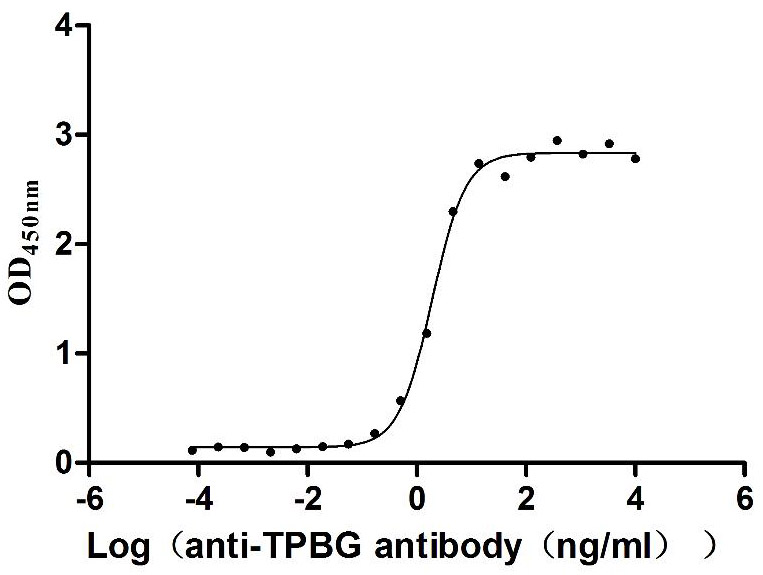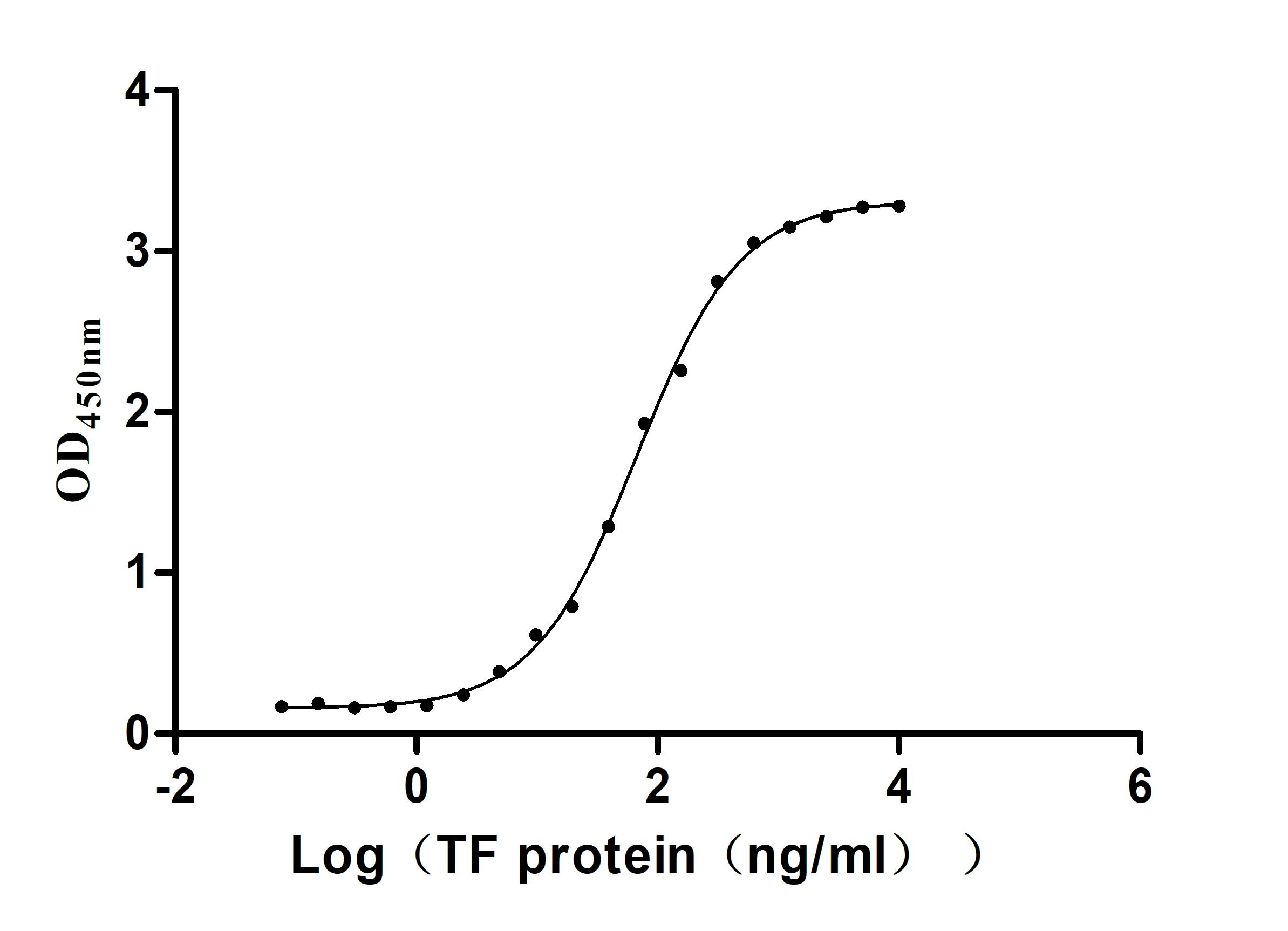Recombinant Human Kallikrein-10 (KLK10), partial
In Stock-
中文名称:人KLK10重组蛋白
-
货号:CSB-EP012447HU1
-
规格:¥1344
-
图片:
-
其他:
产品详情
-
纯度:Greater than 90% as determined by SDS-PAGE.
-
基因名:KLK10
-
Uniprot No.:
-
别名:Breast normal epithelial cell associated serine protease; Kallikrein related peptidase 10; Kallikrein-10; Kallikrein10; KLK 10; KLK10; KLK10_HUMAN; NES 1; NES1; Normal epithelial cell specific 1; Normal epithelial cell-specific 1; Protease serine like 1; Protease serine-like 1; PRSS L1; PRSSL 1; PRSSL1
-
种属:Homo sapiens (Human)
-
蛋白长度:Partial
-
来源:E.coli
-
分子量:30.8kDa
-
表达区域:31-274aa
-
氨基酸序列AEAALLPQNDTRLDPEAYGSPCARGSQPWQVSLFNGLSFHCAGVLVDQSWVLTAAHCGNKPLWARVGDDHLLLLQGEQLRRTTRSVVHPKYHQGSGPILPRRTDEHDLMLLKLARPVVLGPRVRALQLPYRCAQPGDQCQVAGWGTTAARRVKYNKGLTCSSITILSPKECEVFYPGVVTNNMICAGLDRGQDPCQSDSGGPLVCDETLQGILSWGVYPCGSAQHPAVYTQICKYMSWINKVIR
Note: The complete sequence including tag sequence, target protein sequence and linker sequence could be provided upon request. -
蛋白标签:N-terminal 6xHis-tagged
-
产品提供形式:Liquid or Lyophilized powder
Note: We will preferentially ship the format that we have in stock, however, if you have any special requirement for the format, please remark your requirement when placing the order, we will prepare according to your demand. -
缓冲液:Tris-based buffer,50% glycerol
-
储存条件:Store at -20°C/-80°C upon receipt, aliquoting is necessary for mutiple use. Avoid repeated freeze-thaw cycles.
-
保质期:The shelf life is related to many factors, storage state, buffer ingredients, storage temperature and the stability of the protein itself.
Generally, the shelf life of liquid form is 6 months at -20°C/-80°C. The shelf life of lyophilized form is 12 months at -20°C/-80°C. -
货期:3-7 business days
-
注意事项:Repeated freezing and thawing is not recommended. Store working aliquots at 4°C for up to one week.
-
Datasheet & COA:Please contact us to get it.
相关产品
靶点详情
-
功能:Has a tumor-suppressor role for NES1 in breast and prostate cancer.
-
基因功能参考文献:
- MiR-199b-5p promotes cell proliferation, migration and suppresses apoptosis in cervical cancer cells. KLK10 is a direct target of miR-199b-5p. MiR-199b-5p expression is increased and positively correlated with KI-67 in human cervical cancer tissues and cell lines. PMID: 29807015
- blockade of KLK10 attenuates epithelial-mesenchymal transition and activation of FAK-SRC-ERK signaling, which explains the mechanism of KLK10 in promoting metastasis. PMID: 29621546
- To the best of our knowledge, this is the first report on KLK10 exon 3 unmethylated PCR product concentration as potential early epigenetic diagnostic marker in primary ovarian tumors. PMID: 29690914
- KLK10 was verified to be a potential therapeutic target for reversing trastuzumab resistance in breast cancer cells. PMID: 27825132
- Pronounced correlations between KLK10/KLK11 (rs = 0.647) and between KLK9/KLK15 (rs = 0.716) mRNA, but not between other combinations, indicate coordinate expression of distinct pairs of peptidases PMID: 29095848
- identification and molecular cloning of eight novel transcripts of the human KLK10 gene using 3' rapid amplification of cDNA ends (3' RACE) and next-generation sequencing (NGS), as well as their expression analysis in a wide panel of cell lines, originating from several distinct cancerous and normal tissues PMID: 28419837
- Data suggest that mature KLK9 (kallikrein 9) is a glycosylated chymotrypsin-like enzyme with strong preference for tyrosine over phenylalanine at P1 cleavage position; substrate specificity of KLK9 appears to extend to KLK10 and midkine; enzyme activity is enhanced by Mg2+ and Ca2+, but is reversibly attenuated by Zn2+; KLK9 is inhibited in vitro by many naturally occurring or synthetic protease inhibitors. PMID: 28559305
- KLK10 potentially plays a crucial role in esophageal cancer cell growth. PMID: 26479703
- KLK10 may function as a tumour suppressor by repressing proliferation, enhancing apoptosis and decreasing glucose metabolism in PC3 cells. PMID: 26616394
- treated and untreated prolactin-producing pituitary adenomas and carcinomas as well as TSH-producing pituitary adenomas and carcinomas were conclusively immunopositive for KLK10 PMID: 25553760
- Immunoexpression of KLK10 in the ACTH-secreting tumors as well as in the Crooke cell tumors was significantly increased when compared with the nonfunctioning tumors and in the corticotrophs of non-tumorous pituitaries. PMID: 25517869
- is the first correlation of oral squamous cell carcinoma with KLK10 rs3745535G>T polymorphisms PMID: 23413953
- KLK10 expression is an independent biomarker of unfavorable prognosis in patients with gastric cancer. PMID: 24409072
- Patients with high KLK10 expression had a shorter disease-free and overall survival rates. PMID: 23499583
- Enhancing KLK10 gene expression can decrease the proliferation and invasiveness of human tongue cancer cells in vitro. PMID: 23268413
- Finding lower KLK10 levels in pleomorphic adenoma suggests aberrant expression in a tumour that develops primarily from myoepithelial cells. A kallikrein cascade may play a role in the development and/or outcome of some salivary gland tumours. PMID: 23250777
- KLK10 DNA methylation was significantly associated with prostate cancer. PMID: 22874102
- Data indicate a statistically significant positive association between kallikrein-related peptidase 10 (KLK10) and tumor stage and liver metastases. PMID: 22437349
- Loss of KLK10 is associated with ovarian cancer. PMID: 22102857
- KLK10 gene expression may be used as a marker of unfavorable prognosis for colorectal cancer PMID: 21487810
- Single nucleotide polymorphisms in KLK10 is not associated with ovarian cancer. PMID: 20686372
- Results indicate that cells underwent EMT exhibited overactive TGFbeta signaling and loss of expression of the CDH1, CGN, CLDN4, and KLK10 genes as a result of hypermethylation of their corresponding promoter regions. PMID: 20086175
- NES1/kallikrein 10 mRNA is expressed in normal breast tissue and benign lesions, with loss of NES1/kallikrein 10 expression during tumor progression. PMID: 11705853
- Identification of single nucleotide polymorphisms in the human kallikrein 10 (KLK10) gene and their association with prostate, breast, testicular, and ovarian cancers. PMID: 11920956
- Higher expression in breast cancer predicts tamoxifen resistance PMID: 12087468
- kallikrein 10 is expressed in the nonmalignant and malignant prostate, with cancer tissues demonstrating slightly lower expression PMID: 12970725
- Downregulation of kallikrein 10 is associated with breast cancer PMID: 14696124
- Kallikrein K10 is decreased in cerebrospinal fluid (CSF) of frontotemporal dementia patients and K10 is increased in CSF of Alzheimer patients, compared to control subjects. PMID: 14972646
- new splice variants of the KLK10 gene identified; in silico analyses show differential expression of gene in various malignancies and provide basis for directing experimental efforts to investigate possible role of gene as cancer biomarker PMID: 16103744
- CpG island hypermethylation plays an important role in the downregulation of kallikrein 10 mRNA and protein expression PMID: 16254462
- Kallikrein 10 is highly expressed in uterine serous papillary carcinoma, and it is released in the plasma and serum of uterine serous papillary carcinoma patients. PMID: 16647913
- REVIEW of KLK10 gene expression in neoplasm cells PMID: 16800732
- functional importance of retinoic acid response elements in the hK10 promoter was demonstrated by retinoid induction of hk10 promoter-reporters PMID: 16800735
- results suggest a co-regulation of KLK10 and KLK11 expression in lung and a lack of KLK10 suppressor role in non-small-cell lung cancer PMID: 16800740
- KLK10 expression is up-regulated in CRC and GC and higher expression of KLK10 closely correlates with advanced disease stage, which predicts a poorer prognosis. PMID: 16928223
- Results suggest that NES1 inactivation might contribute to the malignant progression of human gastric cancers. PMID: 17182177
- Glucocorticoid receptor-mediated expression of kallikrein 10 PMID: 17937626
- The hormone-specific upregulation of PSA, KLK10 and KLK11 in the breast cancer cell line T47D is dependent on major intracellular signaling pathways. PMID: 18515984
- Suppression of gastric cancer growth by baculovirus vector-mediated transfer of normal epithelial cell specific-1 gene. PMID: 18855978
- synergistic effects between estrogens and androgens on estrogen-sensitive genes may have implications on the role of the kallikreins 10, 11, and 14 in associated risk of breast cancer and progression. PMID: 19383315
- Down-Regulation of KLK10 through DNA Methylation is associated with hepatocellular carcinoma. PMID: 19760608
显示更多
收起更多
-
亚细胞定位:Secreted.
-
蛋白家族:Peptidase S1 family, Kallikrein subfamily
-
组织特异性:Expressed in breast, ovary and prostate.
-
数据库链接:
HGNC: 6358
OMIM: 602673
KEGG: hsa:5655
STRING: 9606.ENSP00000311746
UniGene: Hs.275464
Most popular with customers
-
Recombinant Human Glucagon receptor (GCGR), partial (Active)
Express system: Mammalian cell
Species: Homo sapiens (Human)
-
Recombinant Human Poliovirus receptor (PVR) (I340M), partial (Active)
Express system: Mammalian cell
Species: Homo sapiens (Human)
-
Recombinant Human T-cell surface protein tactile (CD96), partial (Active)
Express system: Mammalian cell
Species: Homo sapiens (Human)
-
Recombinant Rat Microtubule-associated protein tau (Mapt) (Active)
Express system: Mammalian cell
Species: Rattus norvegicus (Rat)
-
Recombinant Human Claudin-9 (CLDN9)-VLPs (Active)
Express system: Mammalian cell
Species: Homo sapiens (Human)
-
Recombinant Human Interleukin-17A (IL17A) (T26A) (Active)
Express system: Baculovirus
Species: Homo sapiens (Human)
-
Recombinant Macaca fascicularis Trophoblast glycoprotein (TPBG), partial (Active)
Express system: Mammalian cell
Species: Macaca fascicularis (Crab-eating macaque) (Cynomolgus monkey)
-
Recombinant Human Serotransferrin(TF) (Active)
Express system: Mammalian cell
Species: Homo sapiens (Human)

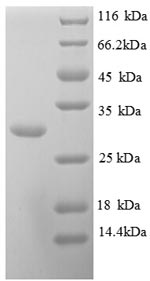

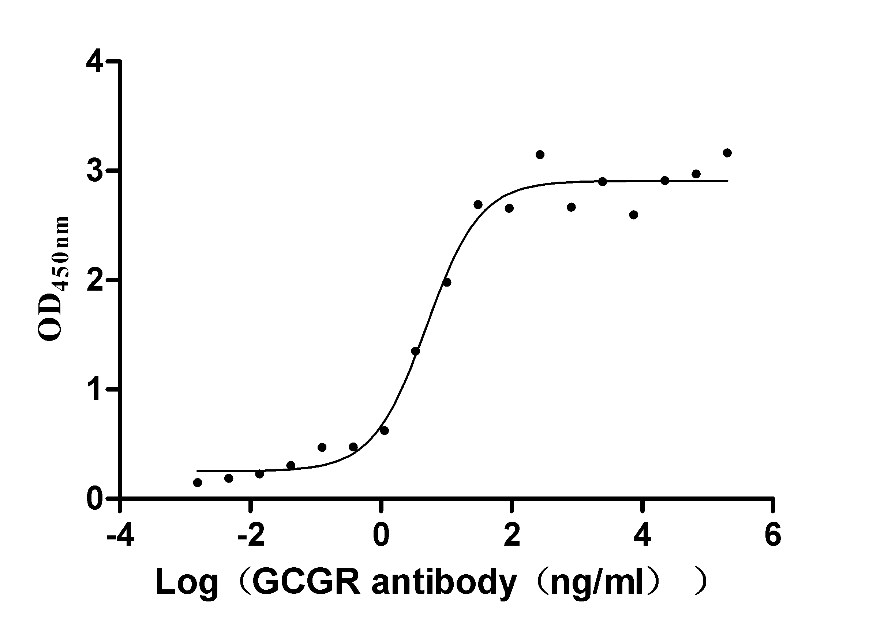
-AC1.jpg)
-AC1.jpg)
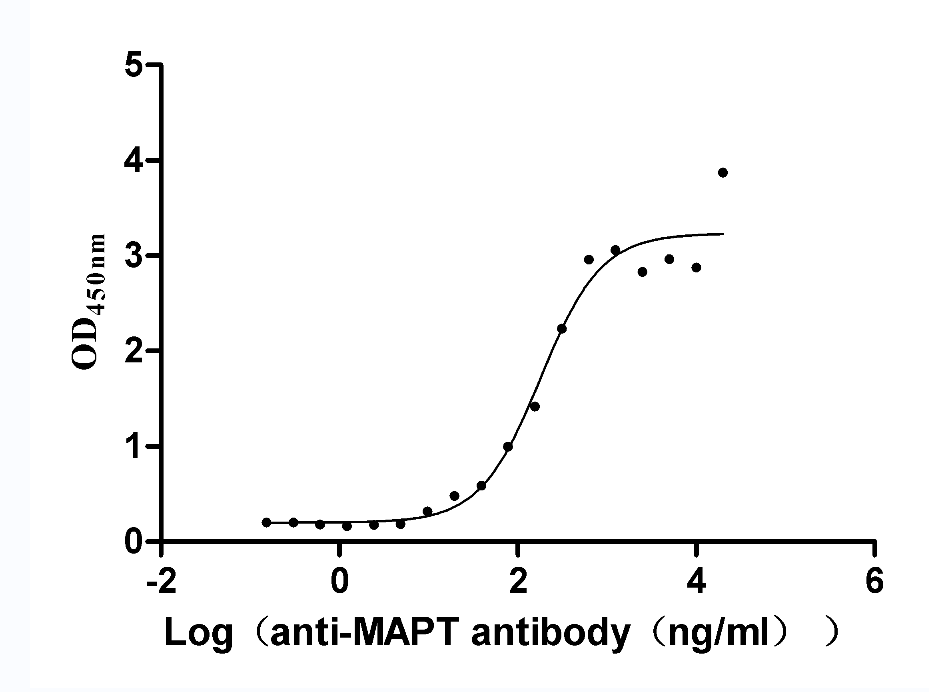
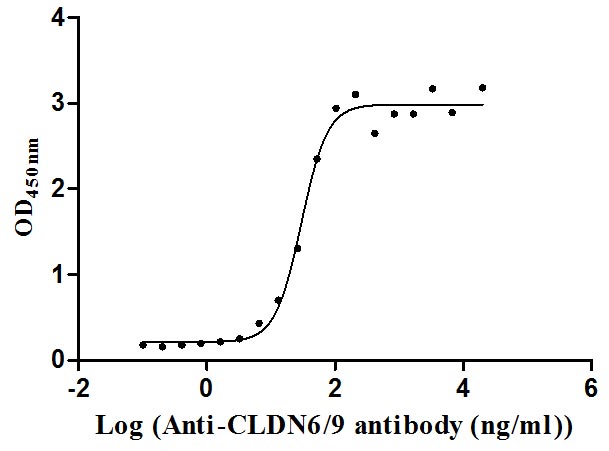
-AC1.jpg)
